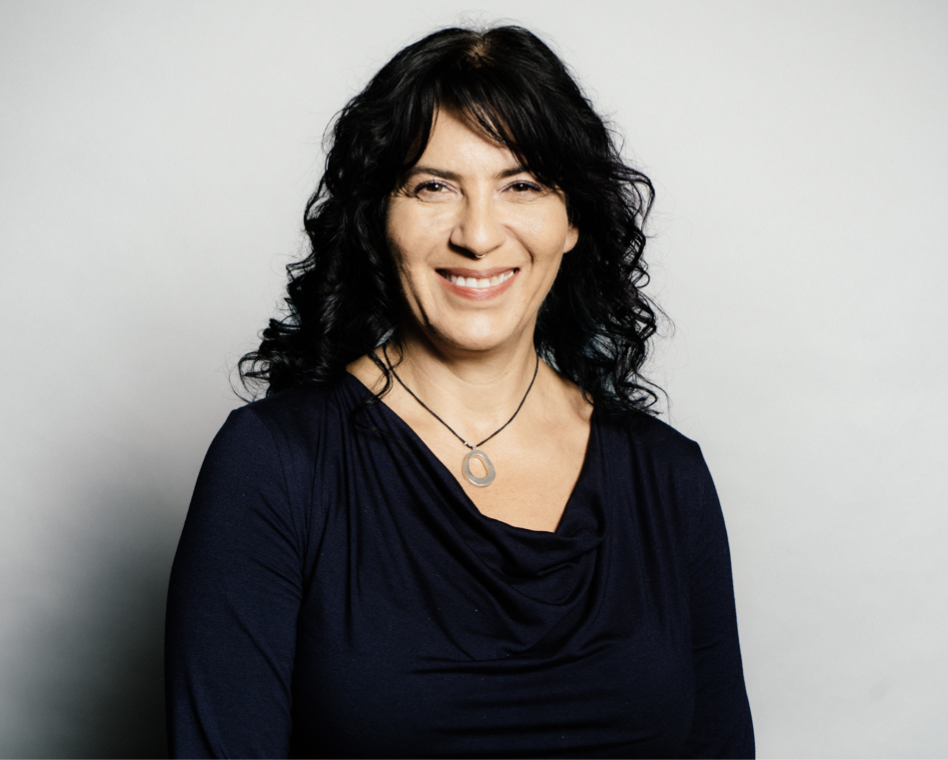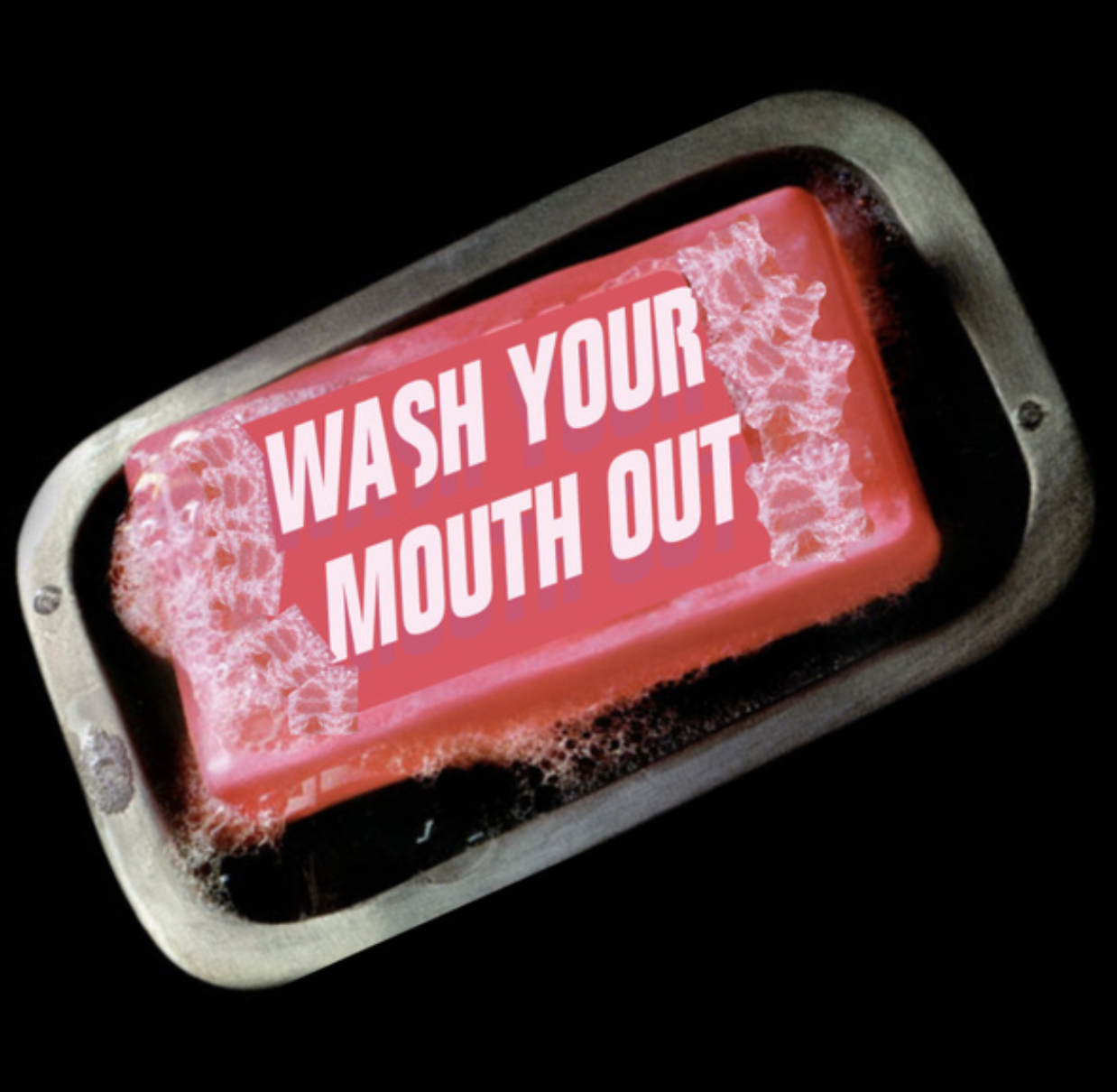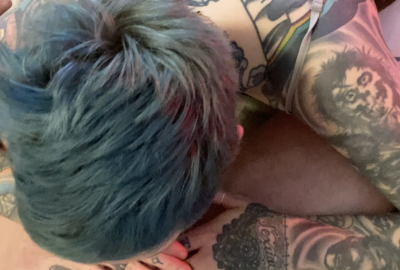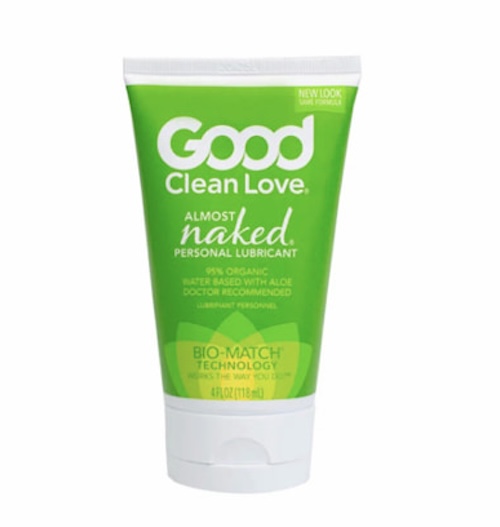Education, Interviews, Updates
Dr Evelin Dacker – Interview
Dr. Evelin Dacker has been a healthcare provider for twenty-four years, and she has some big plans for the future of sexual health in America. Today, this sex-positive doc with a TEDx talk tells us why herpes is the new chicken pox, how sex-workers are healers, and why your doctor might be motivated to overprescribe.
ELLE: How many doctors do you interact with who have similar views as you? Or is that hard to find?
DR. EVELIN DACKER: Outside of my practice, very few, and most of them are either naturopathic doctors or Family Nurse Practitioners. Nobody wants to take the risk of having these conversations in public, even I feel that I am at risk of losing my reputation and losing my patients and my practice.
How so?
I am scared of being vilified because I am a sex-positive person. There is this presumed assumption that if you openly discuss the pleasure and power of sex outside of a committed monogamous relationship then you are immoral, because of this people are afraid to talk about it. Sex is an important part of being human and we need to do more education to destigmatize sex in general. My approach to sexuality as a medical professional, is that it is important for your overall physical and mental health. Sex belongs to us as people, not to our partners, not our families, and not to our religion.
Who are you?
My name is Dr. Evelin Dacker ( pronounced Ev-ah-leen) My interests are women’s healthcare, hormones, mental health and sexual health. I am the Medical Director of Vida Integrative Medicine and Behavioral Health in Salem OR. I opened the practice in 2005 to introduce the concept of a holistic, integrated approach to primary care that is accessible to everyone. I employee two Physician Assistants, one Acupuncturist, one Functional Medicine Pain specialist (Nurse Practitioner), one Gynecologist, two mental health therapists and a Psychiatric Nurse Practitioner. I named it Vida because Vida means “life” in Spanish.
I practice something called Functional Medicine. It is like the Naturopathic Medicine for MD’s. We look at upstream causes for illness, like diet, lifestyle, life events, infections, toxins, etc. And yet even when I was at my last Functional Medicine conference, I looked at all the books written by all the various experts and there was NOT ONE book related to sexuality. I was appalled because our sexuality plays such an important role in humans. It is our fundamental life force and how can we ignore this if we are truly “holistic”? So I have decided to take it on as my mission to change this.
You’ve been a doctor for twenty-four years, and you have owned your own practice for eleven years; have you seen a lot of bureaucratic changes in this time?
Yes, and that’s one reason that I want to move away from an insurance-based model; having to click more buttons on our medical records has nothing to do with good patient care. I’d rather spend timing listening to my patients than checking boxes regarding smoking or immunizations. Many of my depression patients are treated with things other than antidepressants. Doctors receive scores from insurance companies based on how “good” they are at prescribing medication, and reimbursements to me are based on this.
Scores can also be based on how often your patients get mammograms, how many of them are reported smokers, how many remain on their medications, and your rates of vaccination.
So it’s reinforcing for doctors to write a prescription? It reflects well on the doctor?
Exactly. I try not to pay attention to “scores” because I’m not going to play into people’s ideas of what is the right way of practicing medicine. But I click the boxes and pretend to make them happy. I know a lot of doctors, but many doctors in primary care are not educated in sexuality and the role it plays in overall health and wellness. We live in a shaming culture, and most doctors are no different. Nurse Practitioners, Naturopathic Doctors, and Gynecologists are the exception, in my experience.
Say I’m a 20 year old closeted queer chick with a history of self harm, Adderall prescriptions, and I smoke a lot of weed and I come to you because I’m suicidal. Where do you begin?
First, I would want to talk about your mental health and make sure you are safe. Then I would recommend you see a mental health provider and make sure that your medications are appropriate. Then we would approach your relationship with sexuality. Safety first. Then delve deeper.
I once encountered a doctor who was horrified by the notion of smoking marijuana for ADHD but loved to prescribe Adderall.
You need to find a new doctor. Also, most doctors never ask about their patient’s sexual history when taking their general history, but they certainly should. Doctors should also ask a person their preferred pronouns, if they are sexually active with men, women, or both, if they are sexually active with more than one person (even “monogamous” people sometimes are not), and how they practice safer sex.
Do you have any specific concerns regarding a GOP-sponsored health plan in general?
I have a lot of concerns regarding the new health care bill in Congress. It will destroy healthcare for the poor (i.e women), disabled, and disenfranchised. It is short-sighted and will leave more people sick, bankrupt and worsen the health of the nation. I am especially distraught over the removal of funding for women’s healthcare (reproductive rights) in our nation and internationally. How will we support a growing population and remove money to keep them healthy? It makes no sense. But not much of this administration does.
And we know that STIs are on the rise in America this last year, do you have any theories as to why?
Many people do not like talking about STI prevention because they are ashamed of it. And even though we pass germs to each other all the time when we cough, sneeze, or touch anything with unwashed hands, testing positive makes people feel “dirty.” I have a theory that people do not get tested and they do not actually ask their partners of their STI status.
I still know lots of people who fuck without condoms before they have any conversation, and I must admit I’ve done this before too, mostly because I didn’t want to “ruin the mood.” Sure enough, I tested positive for chlamydia shortly after!
Generally, young adults are in a high-risk group. Drinking alcohol and lack of comfort in the relationship results in low condom use.
In the community of men who have sex with men [whether or not they identify as gay] the use of PREP (Truveda) which help prevent HIV, is often used, and some men still don’t use condoms! PREP only prevents against HIV and that is very important, and yet we have seen an increase of syphilis and gonorrhea in this population. Condoms are important, and so is conversation with your partners.
The CDC recently stated that nearly all Americans will acquire at least one strain of HPV in their lifetime, this is shocking to many people, but what we don’t realize is that most people live with viruses in our bodies anyway.
Varicella (chickenpox), Epstein-Barr (Mono) are very common strains of herpes.
Most people don’t know this, and our culture is very deeply erotophobic. There is a great deal of shame associated with sex, it always comes back to stigma. Regarding all nine types, HSV-1 looks like oral sores, which most people know as “cold sores.” HSV 2 symptoms include genital sores, and people tend to view those much more shamefully. Cytomegalovirus (CMV) can affect pregnant women, but luckily that’s rare. 6A/B, and 7 look just like a normal viral infection, and the eighth type is related to Kaposi sarcoma, which used to affect AIDS patients and is a cancer. Types 6 and 7 are rare.
I’ve had both in my childhood, and I’ve gotten oral cold sores since I was a child.
Yes, you most likely got it from someone with HSV 1 kissing you. It’s very common.
And viruses aren’t necessarily sexually transmitted either.
Virus are usually transmitted through fluids- either airborne (like coughing) or exchange (like kissing or sharing glasses). Some like Hep A are fecal-oral transmitted. HSV-1 and 2 are transmitted through body contact (like dry humping or kissing) but moist skin is usually also needed.
You want more of your focus and education on sexual health these days, why? Is this a recent development or has it been a desire of yours for a while?
Women’s health has been my main passion since I was a teenager. And our bodies, sex, mental health all are integral to our physical health. There is a bias towards not talking about sexuality in academia, and as a healthcare provider, our current state of affairs is not acceptable.
I’m starting this by outlining my method of healthy sexual communication that I named “STARS.” STARS is a series of questions to facilitate safer sex with a potential partner. Much of this was born from the kink and poly community, because those communities tend to be very good at discussing boundaries and consent. STARS is a way of describing intentions, fears, boundaries and desires, and stands for: STI Status, Turn-ons, Avoids, Relationship intentions/expectations, and Safer sex etiquette. (I drew on Reid Mihalko’s elevator speech for format inspiration.)
And I created a class where people learn it and practice it. My goal is to create a workbook and take it to college campuses. Because this conversation needs to be mainstreamed.
We need to teach sexual communication early, we need to teach people to know their desires, boundaries, and limits. Reducing alcohol consumption on college campuses would help reduce the incidence of rape too. But communication is the first step to creating a sex-positive culture.. I have this ridiculous fantasy that at the beginning of every frat party people write down their STARS talk to share with the people they later hook up with.
Instead of hazing and date rape on college campuses, yes that would be fantastic. Consent communication can begin even earlier; I raise my daughter to be mindful of consent in all her activities. For example, I don’t play tickle games where my daughter is asking me to “stop!” and I’m still tickling her. When she says “stop” I stop touching her, I also don’t force her to hug or kiss anybody, even me.
Just the fact you talk about it is positive, and it’s good to teach her that her body IS HERS. But many people teach consent using fear-based approach: “People are scary and they will hurt you.”
Can you explain why this isn’t a preferred method of discussion consent? A
A healthy approach relies on the fact that Your body is yours. You can say No and Yes. Touch can feel good, but sometimes it might not feel good if you don’t want someone to touch you, whether it’s genital touching, or general tickling. You are empowered to say no, and you are always welcome to talk to me about it. Keep it open and shame-free.
What do you have planned for the future?
I want to write a book about the importance of healthy sexuality for optimal “whole health.” I would also like to teach other healthcare providers on how to address sex in a positive, nonjudgemental way. In January I became CEO of “Sex Positive Portland” and hope to continue to work on improving sex education. Collaborating with other sex-positive groups in Portland to create a truly sex-positive city is a dream of mine as well. I fantasize about opening a sexual healthcare practice, and I’d staff it with sex therapists, sex educators, functional medicine providers and partner surrogates, aka “sex surrogates.”
Partner surrogates specialize in helping their patients overcome sexual anxieties or dysfunctions, which applies to so many Americans, and I love that you include them in your plans.
I believe that sexological bodyworkers are in that gray zone between lifestyle coaches, massage therapists and sex workers. It is a continuum that falls somewhere between sex educators and sexual surrogates. Ideally, I would have sexological body workers or surrogate partners help patients to understand their own body better.
I was called a “Sexuality Activist” recently and of all titles I liked that one best. I want to change the world. Our sex-negative culture needs to shift if we want to be physically, mentally and spiritually healthy. I wish I could be Brene Brown, Dan Savage and Dr. Ruth all rolled into one person, but I guess I will just have to work on being me.
Right now I am focusing on teaching people how to talk to each other about sex with STARS, working towards destigmatizing sex through my practice as a physician, and slowly helping people let go of shame, create community and explore themselves through my work in SPP.
Lots of people will be happier and healthier because of your work, thank you
Follow Dr. Evelin Dacker’s work on MakeTimeForTheTalk.org and hear more discussion on sex tips, circumcision, and gender in season 2 episode 2 of Strange Bedfellows Podcast with Elle Stanger.



























Leave a reply